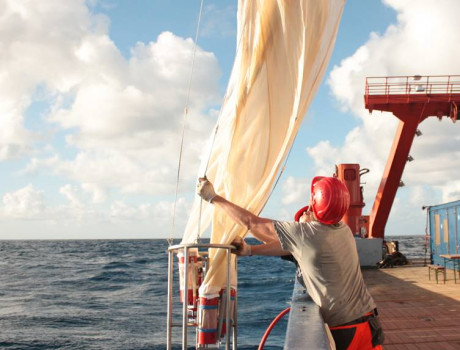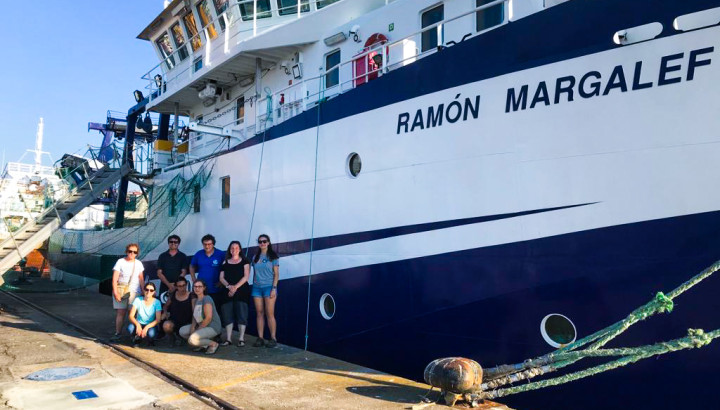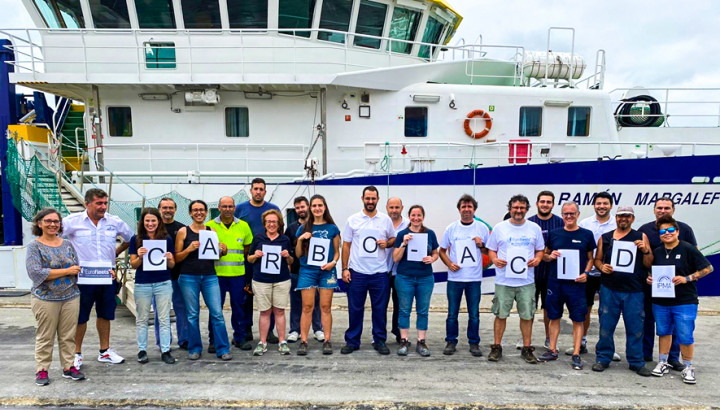
The carbon dioxide (CO2) emitted to the atmosphere since the Industrial Revolution led to a global, unprecedented increase of its concentration from 280 ppm to over 400 ppm.The ocean has been absorbing around 30%, partly compensating the excess of atmospheric CO2, with drastic impacts on the marine environment, including changes in productivity. The Eastern Boundary Upwelling Systems (EBUS) are among the world’s most productive ocean ecosystems, playing also an important role in the atmospheric CO2 sequestration. Three out of the four world EBUS are already suffering the effects of climate changes with intensification of the winds whereas for the Canary/Iberian EBUS the consequences remain uncertain. The Iberian EBUS supports large communities that are socio-economically dependent on the goods and services provided by this system. Thus, it is critical to understand how it is responding to climate-driven changes and assess how it will evolve in the future. One way of addressing this question is by establishing the differences between anthropogenic and natural climate variability, and in this case, by using productivity tracers. Although over the last 50 years several methods have been applied to reconstruct productivity, each of them holds specific limitations (e.g. time consuming, depth, salinity, and ocean circulation, low concentrations, influenced by local inputs),for which, to ensure a robust reconstruction, two or more should be applied simultaneously at any given site or time interval. Hence, the search for more robust, high-fidelity productivity proxies is still imperative. Rare earth elements (REEs) potential as proxies to reconstruct past ocean conditions was recognized in the 80s, yet their unknown behavior in diagenetic environments and readsorption-related issues prevented their use as proxy until recently. REEs in planktonic foraminifera have been suggested to respond to changes in surface productivity. The unique characteristics of planktonic foraminifera (preservation in the sediments, wide distribution, common use as paleocenographic archives and the extended background knowledge on their ecology) makes them ideal to investigate REE. In this project, we aim to further investigate (and hopefully establish) REEs composition in planktonic foraminifera as a potential proxy for productivity. The study will focus the western Iberian Margin, as part of a highly productive EBUS that has, so far, never been investigated for this purpose (within the few studies ever conducted for this paleoceanographic use of REEs). In order to achieve this, we will combine living and fossil planktonic foraminifera (retrieved from plankton tows and surface sediments, respectively) using a multi-proxy approach.
Members of the research team:
- Andreia Rebotim (PI, CCMAR/IPMA)
- Cristina Lopes (Co-PI, CCMAR/IPMA)
- Antje Voelker (CCMAR, IPMA)
- Emília Salgueiro (CCMAR/IPMA)
- Pedro Aboim Brito (IPMA)
External Advisor:
- Adina Paytan (University of California, USA)




